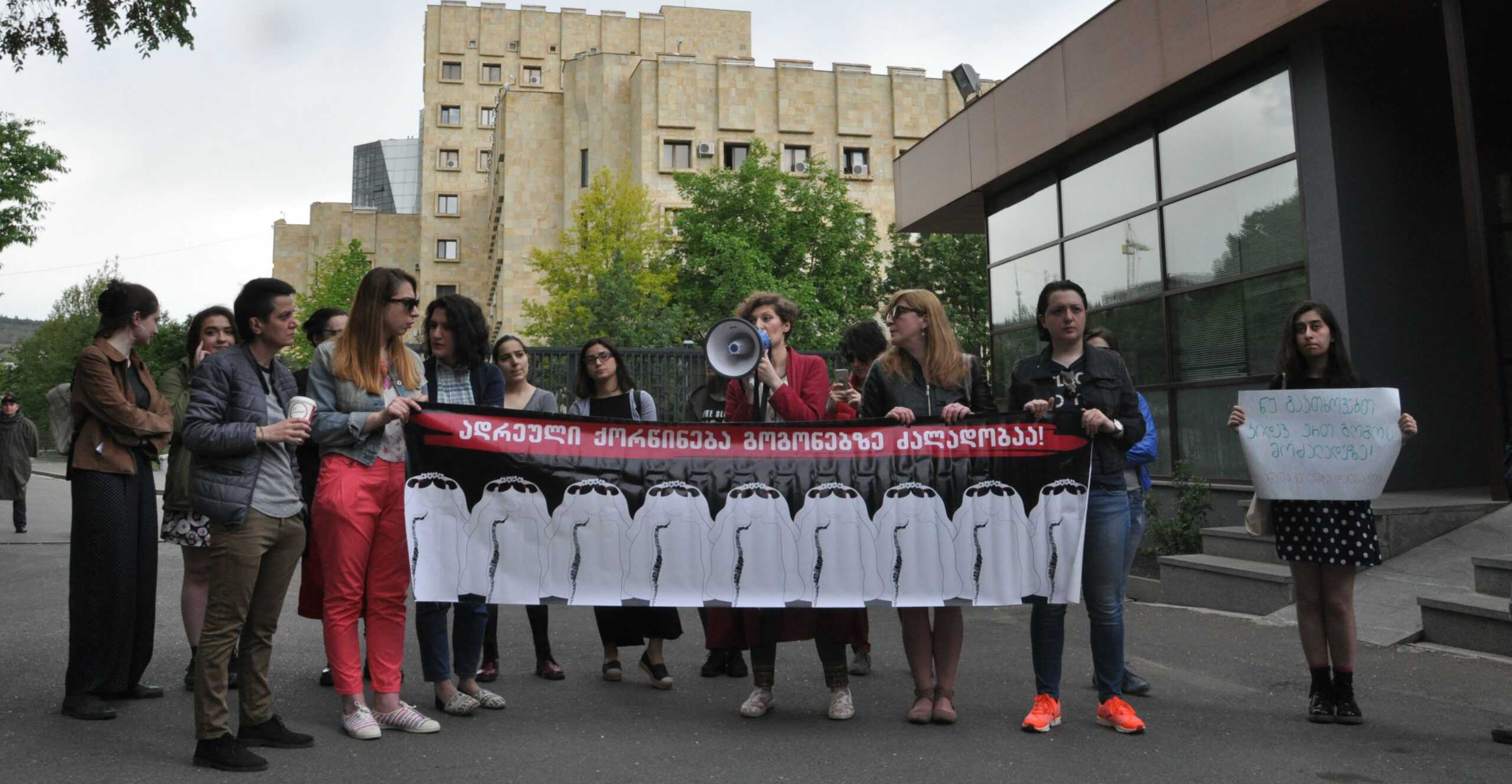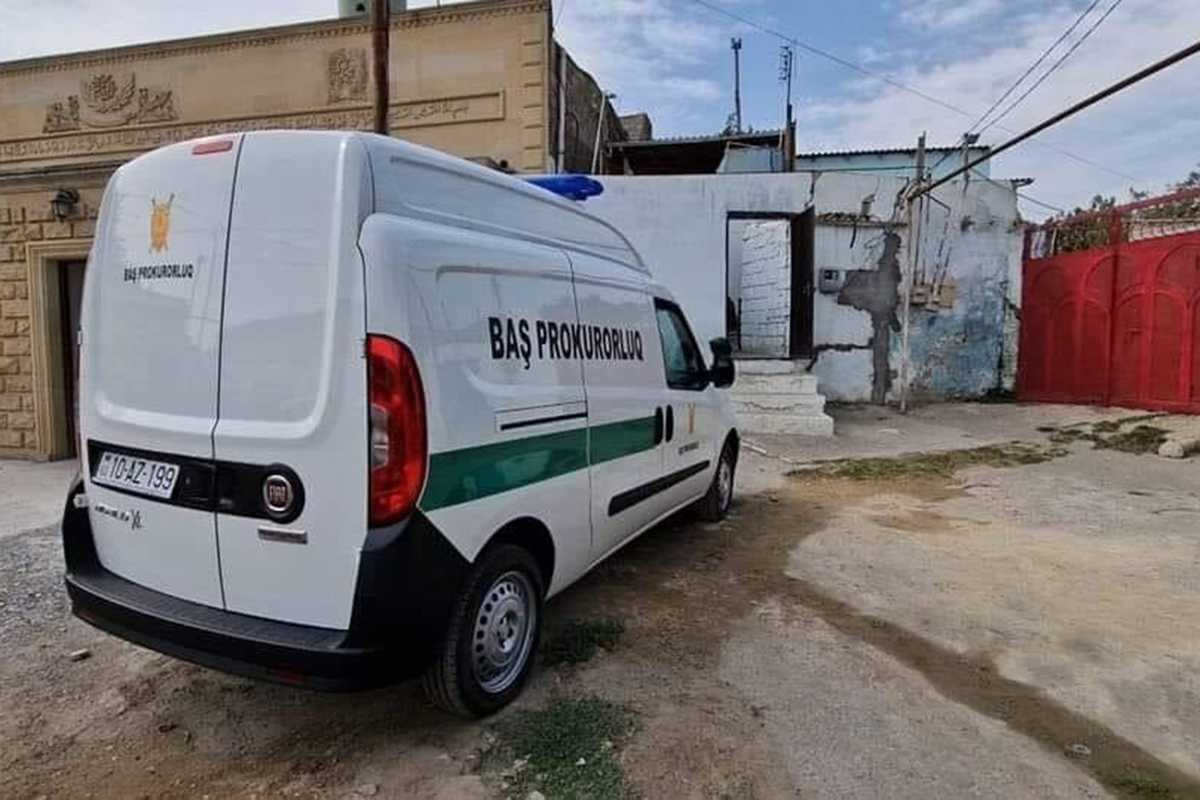
A group of survivors of child marriage have spoken out about their experinces and against the practice.
In a report by Equality Now, a London-based rights group, seven women spoke of their experiences.
All Chinara Kojaeva wanted was to get a decent education and make her family and village Kosalari (South Georgia’s Tetritskaro Municipality) proud. However, graduating from school was only her priority.
Her family took a large loan to arrange a wedding with a wealthy local man, something they had not done to finance her final years of secondary school.
Facing a marriage arranged by her parents, Chinara dressed all in black in a sign of protest and lived in fear of being kidnapped by her groom even before the undesired wedding.
It took several years and two police interventions until Chinara, then 17, felt safe enough to confirm to police she was being wed against her will.
Police isolating her from his family members, relatives, and friends of the family from the village, and providing her with a shelter was crucial for her to speak up.
Three years later, Kojaeva is now engaged in empowering other girls and young women, including those living in her native village.
She currently works as a cashier at Carrefour in Tbilisi and has plans for a post-pandemic future.
‘I plan to study at the Police Academy and enrol in law school the next year. I also want to open a foundation to help underage girls in their fight against forced marriage, to help them escape oppressors’, she told OC Media.
Chinara Kojaeva amplifies her message against child marriage by being one of two of the women in the report to speak about her experiences under her real name.
Chinara said she decided to tell her story publicly ‘because what happened to me happens often… I know how these girls are feeling — they are feeling what I was feeling’.
‘Parents of girls will never listen to me but I would like to tell them to put their children and their children’s happiness first. They cannot decide on their own that their girl will be happy if being married’, she said.
Unregistered and unreported crimes
The experience of Chinara Kojaeva, who was eventually offered shelter and whose father was sentenced to two years in prison, is also an example of parents in Georgia who only postpone a forced marriage in the hope of avoiding prosecution.
Since 2017, Georgia introduced a complete ban on marrying those under the age of 18, regardless of parental consent.
However, in some instances, the fear of Georgian legislation only delays an arranged marriage, or in fact, never stops it from actually happening: parents still force a minor into a union which, albeit unregistered, is socially recognised and practiced as a marriage within a community.
This is a common but unmeasured practice in Georgia, beyond the 14% of girls aged 20–24 who as recently as in 2018 reported to had been married before they reached 18.
Indictments for statutory rape are complicated in Georgia as victims, often being pregnant or already being mothers, remain under the influence or pressure of their partners and relatives and often do not self-identify or self-report as victims to the authorities.
In this regard, reporting in September 2019 on a previous year, Georgian Public Defender Nino Lomjaria noted that ‘when it comes to ethnic minorities’, Georgian police were reluctant in responding to reports of bride kidnapping as the authorities expected ‘families to agree quickly’.
‘Some girls drop out of schools out of fear of being kidnapped’, the Public Defender said.
This year, Georgia’s Interior Ministry reported 34 cases of bride kidnapping between January-September.
[Read more on early marriages and domestic violence in Georgia on OC Media: Georgia’s early marriages: destinies blackened in white dresses]
A nationwide problem
On the background of media reports on early and forced marriages in areas with densely populated ethnic minorities, some Azerbaijani women’s rights activists have recently grown worried about the stigma towards Azerbaijani communities in Georgia. They instead urged the state to identify and remove barriers that women face, like a lack of local infrastructure and access to adequate vocational and continuing education services.
Goga Khatiashvili, the former Head of the Human Rights Protection Unit under Georgia Interior Ministry, who was personally involved in aiding some of the women who told their stories through the Equality Now publication, similarly underlined that while child and forced marriages were prevalent in rural and ethnic minority communities, urban areas were ‘not immune’ either.
OC Media asked Chinara Kojaeva to identify who or what failed her most when she faced the prospect of forced marriage and needed help. ‘The state, police and law enforcement agencies, of course, those that ensure beneficiaries have shelters’, she said.
Chinara said she remained grateful to those who helped and intervened in her case. But her story also tells of an unsuccessful police investigation when she was 14, something that only postponed her wedding until she turned 17 and managed to find a journalist to report her situation.
In their report, Equality Now urged the Georgian government to improve institutional mechanisms to respond to child and forced marriages — including adequate shelters and trained public service providers — and to prevent these problems by raising awareness in target social and professional groups as well as among law enforcement officials.







